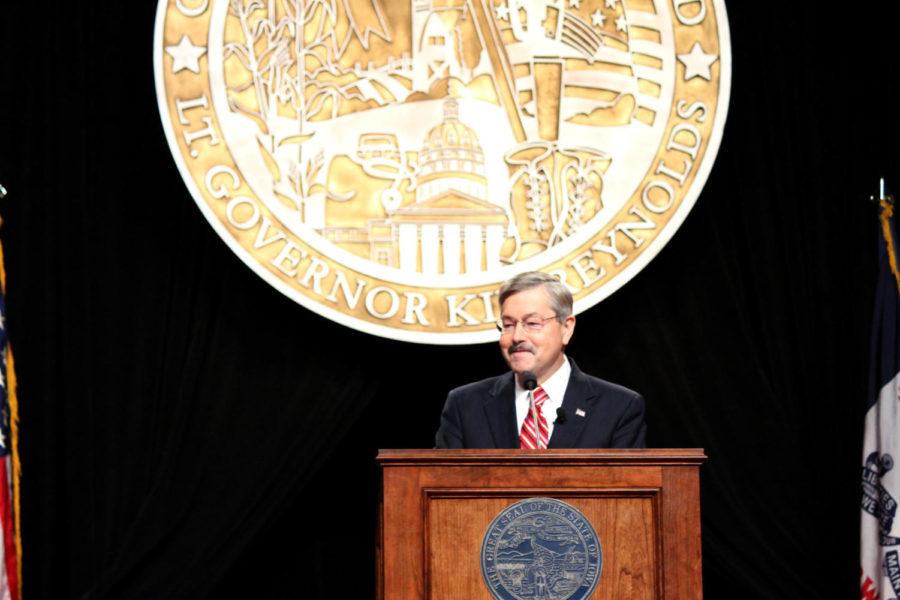At education summit, leaders focus on standardized testing, teacher evaluation
July 27, 2011
Superintendents and school board leaders must now determine how to put what they discussed at this week’s Iowa Education Summit into a plan of action for the state.
Monday and Tuesday were busy days for educators and staff at the Capitol building. Teachers, head learners and Gov. Terry Branstad all convened for the Iowa Education Summit.
The main point of discussion among teachers, educators, business leaders and the governor was the reforms they could make to increase education standards throughout the state.
One breakout session was called “Evaluation and Compensation.” Discussed in it were the criteria for evaluating teachers in the classroom and the ways that evaluations could be related to the way teachers are compensated.
“In the area of the session dealing with evaluation, I think they just talked about the different strategies for approaching and evaluating youngsters at our schools and the importance of moving beyond just standardized measures,” said Carl Smith, chairman of Curriculum and Instruction at Iowa State.
Standardized testing was a hot topic at the summit. Educators tried to think of means of evaluating students that didn’t involve standardized tests like the ACT and ITEDS.
Mack Shelley, university professor of statistics and political science, was one of the summit’s attendees.
“Having standardized scores is really essential if you want to make comparison,” said Shelley.
Along with other states, Iowa has its own standardized tests, the ITBS. Shelley said that it’s hard to compare student achievement throughout the country. That is because each state has their own “homegrown” kind of tests.
Recent studies have shown that Iowa is sliding down the rankings in educational terms. Once a national leader, Iowa has become mediocre. However, this is not because scores are dropping, Shelley said. It is because other states have improved at much more at much faster paces.
“A major theme at the conference was that Iowa needs to do something seriously — and pretty fast — to be able to get back toward the top, where we have been,” Shelley said. “And of course, the only way we know this is by … standardized scores.”
Attendees offered the governor a wide array of ideas to not only improve standardized testing, but also improve education as a whole. Educators believe they can improve Iowa’s education system using ideas brainstormed at the summit.
“I think that this summit provided a lot of information regarding the types challenges and types of areas we need to be thinking on how we can provide leadership as far as education overall,” said Carl Smith, ISU professor of Curriculum and Instruction. “I found it to be a very stimulating two days as far as potential directions for the state.”
ISU history professor Charles Dobbs attended the “Better Quality Teachers” breakout session.
“We talked about how states can put meaningful reforms in place,” Dobbs said. “I believe that reforms should come. It’s only a matter of time.”
Ideas discussed concerned ways educators could improve the curriculum, use technology in a more up-to-date way and administer different tests and unit review assessments.
Many ideas were thrown around during the two-day summit. Now, educators and staff will have to figure out how to put apply the theories they’ve come up with to plans that will help students.
“Overall, I thought [the summit] was pretty good,” Dobbs said. “But, I admit, one cannot tell from that summit, what it will produce or how [educators] will react, because it’s still up in the air.”







